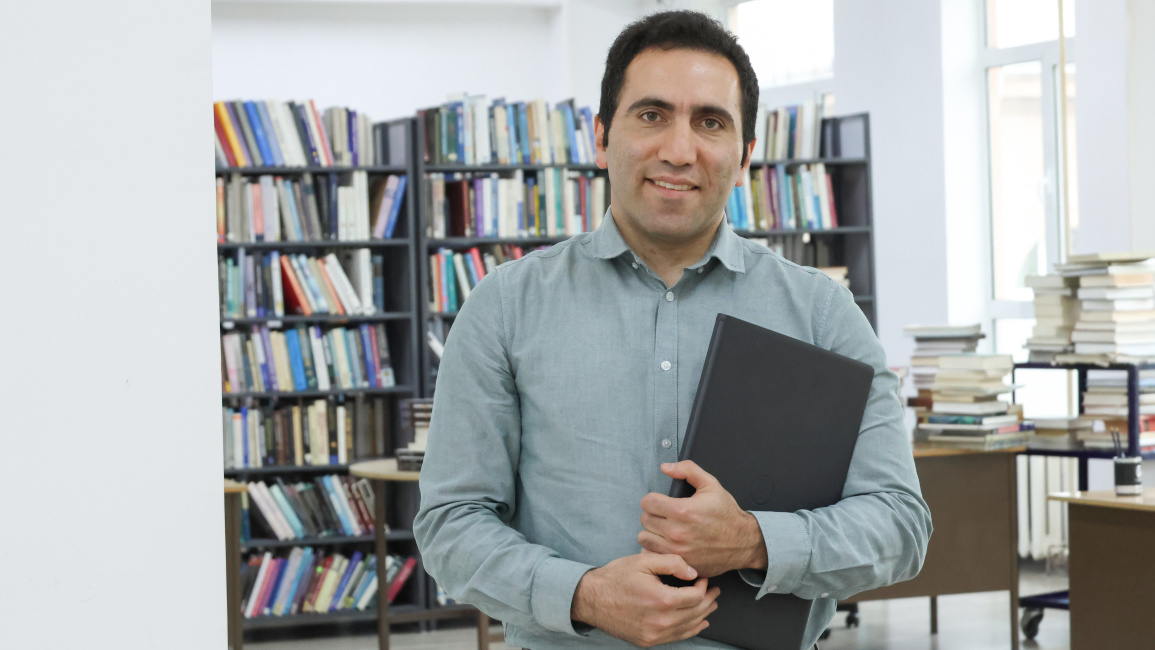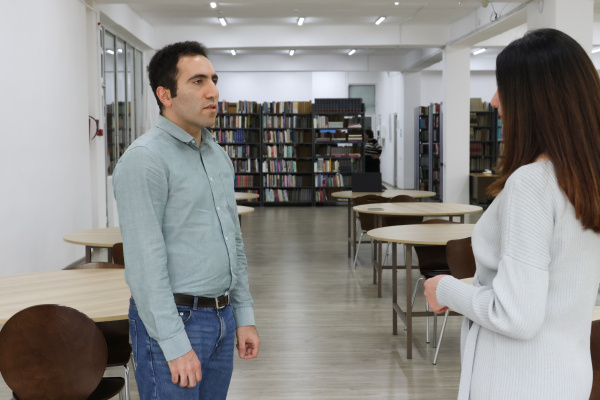April 10, 2025 | 10:20
Research
International cooperation
Competitions
YSU researcher studies the impact of conflicts on relations between South Caucasus and Middle East
Political instability and conflicts have a direct impact on the shaping and development of political, economic, and other relations between the Middle East and the South Caucasus. This is noted by Mushegh Ghahriyan, the head of the research group on Armenia-Arab countries and Armenia-Israel relations at YSU Institute of Armenian Studies. His scientific project titled "The Impact of Conflicts on the Relations between the States of the South Caucasus and the Middle East" has received funding through the "Young Researchers Support Program-2025" competition, announced by the Ministry of Education, Science, Culture and Sports of the Republic of Armenia.

YSU researcher Musheg Ghahriyan, together with his research group, is studying how conflicts and political disagreements in the aforementioned regions impact the relations between the countries of the Middle East on the one hand, and the countries of the South Caucasus on the other.
The young researcher emphasized that their investigations will begin with the events of 1991, when Armenia, Georgia, and Azerbaijan gained independence, marking the gradual development of relations between these countries and those in the Middle East. In other words, the research group will examine the events of the past 34 years, extending up to the present-day developments.
As part of their research, the group will make use of various sources, including archival materials, studies by scholars researching the issue both in Armenia and abroad, and interviews with former diplomats and experts.

Speaking about the directions of the research, Musheg Ghahriyan brought several examples of conflicts that have influenced the relations of the countries in the region. "A significant example is the Iran-Israel conflict, which has a direct impact on the South Caucasus. Regarding issues related to Iran, Israel, based on its objectives, is developing relations with Azerbaijan, which in turn influences Armenian-Israeli relations. In the context of the Palestine-Israel conflict, both Israel and a number of Arab countries have since the 1990s attempted to gain favorable positions from the South Caucasus countries," he said.
Additionally, the researcher from Yerevan State University presented another example: "The next example concerns the Syrian war that began in 2011, which resulted in the Syrian government losing control over some of the northern territories. In these areas, Turkey’s influence grew, and during the 2020 Nagorno-Karabakh War, it transported militants from Syria to Azerbaijan to participate in the war against Armenians."
Musheg Ghahriyan also highlighted the complex nature of Armenia's trade and economic relations with Arab countries, noting that in the 1990s, Turkey’s closure of its border with Armenia hindered trade with Syria and other Arab countries, making such trade economically unfeasible at times.

The research group plans to publish several academic articles on the topic, at least two of which will be in internationally recognized journals. They also plan to present the results of their research through lectures at conferences, round-table discussions with representatives of competent bodies and experts, as well as cooperate with the media.
The members of the scientific group are senior laboratory assistants Rebeka Hovhannisyan, Liana Hambardzumyan, and Aram Abajyan, a researcher at the Institute of Oriental Studies of the National Academy of Sciences of Armenia. The group’s foreign consultant is Dr. George Sanikidze, Director of the Institute of Oriental Studies at Ilia State University (Georgia).
The researchers will work on this project for two years.

